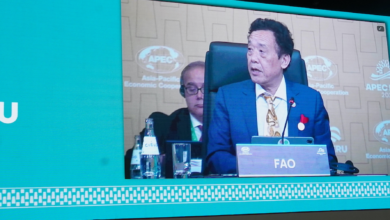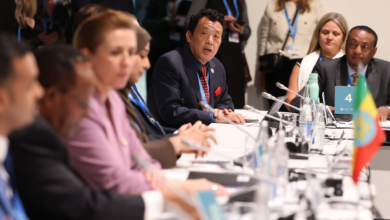Olam Harvests 4000mt On 100ha Jigawa Tomato Farm

Leading agribusiness group, Olam, through its subsidiary, Caraway, has recorded the first commercial harvest of 4000 metric tonnes from its 100 hectares in Kuda Gangara Integrated Tomato Farm in Jigawa.
The company in a statement said that the 100 hectares, being cultivated out of a total of 500-hectares, yielded 40 metric tonnes of tomato per hectare, which was more than four times the average yield in Nigeria.
Reji George, Olam Head of Farming Initiatives, said in a statement, that the tomato farm was being serviced by over 2000 out-grower farmers to complement Federal Government’s backward integration programme.
The backward integration drive was aimed at strengthening local sourcing of raw materials for the company’s tomato paste factory in Lagos, where popular brands of tomato pastes such as De Rica and Tasty Tom are produced.
It said that the company’s current investments stood at $20 million in developing the commercial farming and out-growers programme, crushing, and the plants for processing and packaging.
George said the investment would complement the Federal Government’s thrust of moving agriculture into a self-reliant and sustainable model and ensuring enough and quality food for the population.
“The backward integration helps us to achieve self-sufficiency, develop local farmers and provide increased employment opportunities to the local population,” George said.
He said that the company had partnered with a local crushing facility, Aldusar Foods and Beverages in Katsina State, as part of the local value chain in this backward integration process.
“Caraway hopes to achieve the supply of homegrown and processed innovative tomato product brands of Derica, Tasty tom, jollof mix, onion Pepe etc for domestic consumption,” said George.
Premender Sethi, Caraway Business Head, Packaged Food Business, said that the key critical areas were to ensure consistency in the Federal Government policies and an enhanced level of security.
According to him, low farm productivity, coupled with high post-harvest losses had contributed to the low output of the tomato crop in Nigeria.
He added that the buyback of fresh tomato fruits on time through a network of out-grower farmers and supplying to the crushing plant within 24 hours had also reduced post-harvest losses by more than half.
For Furera Isma Jumare, Director General, Jigawa Investment Promotion Agency, the Caraway tomato project would showcase the state as one of the largest tomato-producing states in the country.
“The caraway project, especially with harvest already beginning within a short period of time, clearly shows the tomato potential of the state, and it will put us right on the map of those that are the largest producers,” Jumare said.
It will also contribute to the state in terms of direct and indirect employment for citizens as well as skills transfer, she said.





